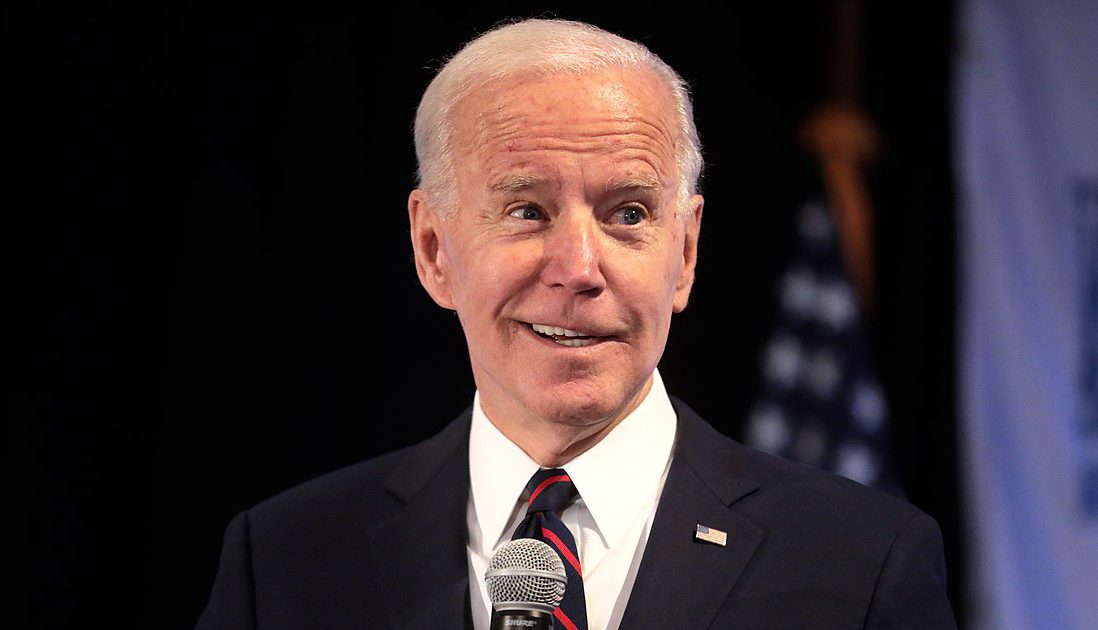The Right Wants to Starve Workers Into Submission. Does Joe Biden Agree?
On Fox News, Laura Ingraham asked, “What if we just cut off the unemployment? Hunger is a pretty powerful thing.” With benefits set to expire, Joe Biden has three weeks to decide whether he agrees with her.

In recent months, President Joe Biden has stressed that pandemic unemployment benefits were always meant to be temporary. (jlhervàs / Flickr)
Throughout the summer, President Joe Biden stressed that enhanced pandemic unemployment benefits were always meant to be temporary, saying it “makes sense” that they’ll expire in September. In response to pushback from Republicans and business interests over the extension, which passed in March, Biden also made it clear that Americans on unemployment would lose their benefits if they rejected any “suitable” job offer.
Now that the Delta variant threatens to prolong the COVID-19 pandemic indefinitely, the Biden administration has indicated that it may be open to extending federal enhanced unemployment benefits for jobless Americans. “He hasn’t made a decision to extend it,” said White House press secretary Jen Psaki, but “he also hasn’t made a decision not to.” Seven and a half million people will stop receiving benefits on September 6 if there is no extension.
Just as left-wing lawmakers led by Rep. Cori Bush successfully compelled the administration to extend the federal eviction moratorium earlier this month, we may see progressives agitate for continued enhanced unemployment benefits. But the Biden administration is also facing intense pressure from business leaders who claim to be struggling to find workers — that is, workers willing to work for what they’re willing to pay — and Republicans (and a few Democrats) who feel it’s time the government cracked the whip and ordered people back to work.
The summer already saw a GOP revolt against enhanced unemployment assistance, with twenty-six states opting not to distribute the federal funds they were allotted. The rationale was that withholding unemployment benefits would force people to secure work, which would solve the labor shortage issue for businesses without compelling them to raise pay.
The red-to-blue state job growth ratio did not significantly change after assistance was cut off, probably because people have very diverse reasons for remaining unemployed. But one thing did change: unemployed Americans lost $1.2 billion in collective income per week, and households that had been lifted out of poverty by $300 weekly checks were pushed back toward it, with no stimulating effect on the overall economy.
The failure of red states’ recent experiment in cutting off benefits to spur job growth has not prompted self-reflection or reassessment. Instead business leaders and their allies in the Republican Party and the media sound as confident as ever that the best policy is to make any further time without a job unlivable for individuals. Their assertions drip with contempt for people on welfare, whose selfishness and poor work ethic is responsible for underwhelming economic recovery.
If that characterization sounds ungenerous, consider this exchange that recently aired on Fox News. Host Laura Ingraham brought the entrepreneur, reality TV star, and hospitality business consultant Jon Taffer on air to discuss the issue. During the exchange, Taffer suggested that the public money currently spent on unemployment benefits should go to employers instead, compelling workers to go seek their share in the form of wages in the private sector.
“What if we just cut off the unemployment?” Ingraham responded. “Hunger is a pretty powerful thing.” She then quickly clarified that she didn’t mean literal hunger — but, of course, literal hunger is exactly what occurs when people aren’t making enough household income to afford basic necessities, including groceries.
After a tangent from Ingraham complaining about millennial self-care discourse, Taffer responded with an affirmation of the need for negative incentives. “I have a friend in the military who trains military dogs, and they only feed a military dog at night, because a hungry dog is an obedient dog,” he said. “If we’re not causing people to be hungry to work, then we’re providing them with all the meals they need sitting at home.”
He concluded these remarks with an appeal for sympathy for hospitality business owners. The message was clear: the time for carrots is over. Now it’s time for sticks.
The Biden administration’s American Rescue Plan, which extended the federal unemployment benefits that were first introduced in the CARES Act in 2020, was met with great enthusiasm, with some breathlessly declaring the end of austerity. On the Left, there was a great deal of discussion over how sincere or lasting Biden’s apparent reversal of decades of market fundamentalism actually is.
The coming weeks will provide yet more insight into the new administration’s willingness to buck the consensus that Biden, as a proud Third Way Democrat, helped create. Will the administration ultimately find persuasive the argument, promoted by the GOP and business interests, that lazy workers are failing the economy and need to be starved into submission?
Or will the administration decide instead that the economy is failing workers — that it’s incumbent on employers to improve pay and conditions if they want employees, as well as on the state to clear obstacles (like the cost and accessibility of childcare and transportation) to finding and maintaining good jobs?
Come Labor Day, of all days, we’ll have the answer.